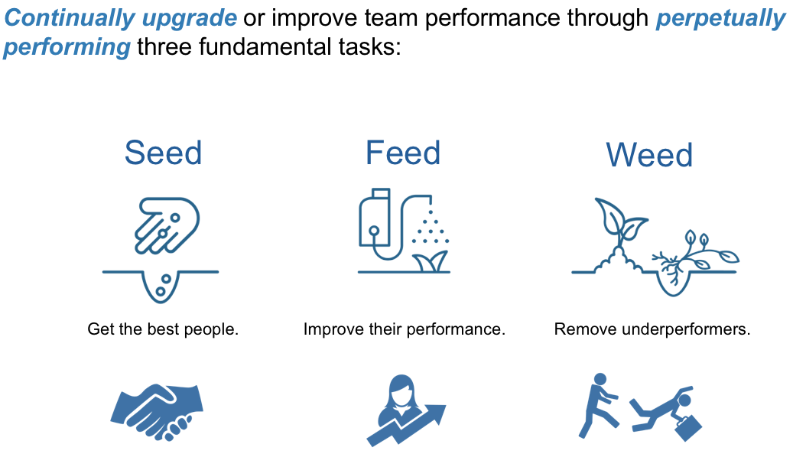
The United States Special Operations Command (SOCOM) has 5 truths that they live by. All of them have guided SOCOM to be the premier fighting force in the world and they all center around people:
Humans are more important than hardware
- Never prioritize your equipment over people. Hardware is always easily replaced. The same is true in technology. Buying a new server is easy. Replacing good engineers is not.
Quality is better than quantity
- Anytime you have the choice between one fully capable person and two okay people, always choose quality over quantity. It gives you the ability to still get the job done and provides more overhead for future hires.
Special Operations Forces cannot be mass produced
- Just like SOCOM, engineers cannot be made in a factory. Yes there are boot camps that help to fill the void in engineering roles but even those graduates still require time to get up to speed on what it is your organization does. No two companies are the same.
Competent Special Operations Forces cannot be created after emergencies occur
- If you hire engineers based upon a disaster, they will be ready for tomorrow's disaster, not today's. Always be prepared.
Most special operations require non-SOF assistance
- Engineers can't work alone. If QA, Security, Marketing, etc. are not present and supporting, then the work that is produced will not be what is required.
It takes an entire team beyond just engineers to get the job done.
People are what make organizations great, nothing else. You may be known for a product, but it is your people that developed it and keep it running.
Seed, Feed and Weed
AKF has a principle of Seed, Feed, and Weed. Broken down into each component:

Seed
Every day new technology and talent are being produced. Additionally, skilled individuals are always looking for their next challenge, particularly if they currently work in a non-favorable company. Some companies use entities to find and evaluate new talent to see if they would be a good fit. Others rely heavily upon their own brand to attract talent. And still, others network throughout the community to make sure they are constantly aware of locally available skills.
Given that everyday distance from the workplace matter less and less for employees, using all three can be very integral to staying viable. If using an outside entity to evaluate new talent isn’t feasible, make sure that you have a solid method in place for determining not only people’s skill but their fit into your culture. If you don’t have a strong name to fall back on, make your software the differentiator. You may not be the biggest mass producer of widgets in the world, but maybe you are the only one who can make them blue. Gravitate towards that for attracting talent. And lastly, if you can’t network then take some tips from marketing. Figure out how to get out there and sell yourself and your company. If you can’t talk excitedly about what you do with someone you meet, then they won’t be excited to work for you.
Feed
There are different facets to Feed. An important aspect of Feed is feedback. Continually communicating with your employees about how they are doing (and not just the wrong stuff) gives them a sense of direction for where you think they should be going. It also lets them know that you pay attention and value their work. Beyond feedback is also training. Managers need to be aware of the required training that someone needs to do their job. If they are managing your databases and have zero database knowledge that is an issue. But employees need more than just required training. They need something that stimulates them. Leaders ensure that employees grow beyond what their role defines them as. If they want to take Underwater Basket Weaving, well encourage it. It may not always benefit the company, but if it benefits the employee it usually has a way of having positive returns for everyone.
Weed
Last, and certainly not least, is Weed. No one likes to be the bad guy. Firing people is tough - but getting rid of people with bad behaviors or repeatedly poor results is part of our duty as managers and executives. Have you tried to make them better? Maybe they were just in the wrong position or didn’t have the right training. Or worse, they just weren’t a good fit for the company. If someone has bad behavior it can be very difficult to remedy. If someone is lacking experience, then it just takes training and mentorship. 9 times out of 10, the experience can be fixed. 9 times out of 10 it is just better for everyone to part ways with behavioral issues.
The key to a good workplace is identifying which is most important to you at any given time as sometimes it can shift. Which of the three to apply more focus on depends on the condition of your team.
People
So why are people so important? Unless you have already developed Artificial Intelligence they are the ones doing the work. The Special Operations Community is aware that money can be used to purchase new equipment but the right people take time and nurturing. The same should be applied to your business. If availability and scalability are your concerns, money can get you all the rack space or cloud storage you need. But only time and effort can get you the right people to manage it.
